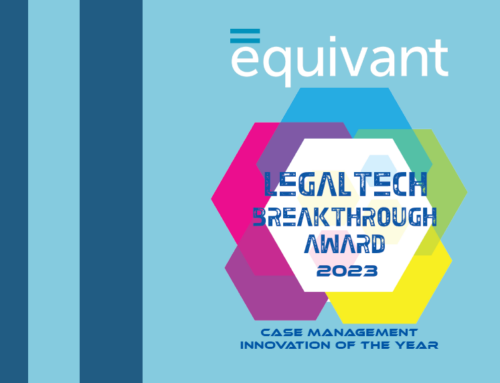A Leading Voice in Pretrial Reform? Yours.
Northpointe Suite Custody Management • An equivant product

Chances are, 60% of the people in your jail haven’t been convicted of a crime and are still awaiting trial. Around 30% are in your custody because they are unable to pay a cash bond. Seventy-five percent are charged with property crimes, drug crimes, or other non-violent offenses.1
While in your jail, the 60% of pretrial inmates you see every day, or even just for a single day, have probably lost their jobs. They’re not seeing or supporting their kids. They’re losing their own support system. And they are in no way increasing their ability to pay the fines, fees, or bail they owe.
Pretrial detention is designed to protect public safety and to help ensure court appearances. But instead, it has turned into a penalty for being poor.
“We’re really judging people by the size of their pocketbook,” said Chief Justice of California Tani G. Cantil-Sakauye. Chief Justice Cantil-Sakauye assembled a task force to ask the tough questions about bail reform and find answers, and the group’s top recommendation was, in the Chief Justice’s words, “Eliminate cash bail because it does not serve the purpose of protecting the community or ensuring a person’s return to court.”2
Chief Justice Cantil-Sakauye emphasizes that this is a three-branch problem requiring a three-branch solution. This reinforces what anyone working in a jail already knows: The courts may be at the center of the pretrial reform debate, but jails are at the center of the ongoing repercussions of those decisions.
As a corrections professional, you can stay educated about pretrial reform and how current laws are affecting your community. You can advocate for the use of risk assessments in pretrial to provide an objective assessment of an individual’s risk to the community or FTA. And you can ensure your jail rigorously collects accurate, complete data to help inform decisions in your state. After a comprehensive study of pretrial incarceration in Michigan, the task force identified standardized data collection and reporting as among the most important ways their state can enact pretrial reform.3
The bottom line is that financial capability is not an accurate measure of risk to determine who should be detained. No matter what state you’re in or how far your local pretrial reform efforts have progressed, we can help. This isn’t just a judicial issue – it’s on all of us to step up.
Contact us today for insights, guidance, or help improving your pretrial data collection and decision making.
1 Criminal Justice Policy Program, Harvard Law School
2 Public Policy Institute of California, 2019
3 Michigan Joint Task Force on Jail and Pretrial Incarceration, 2020





